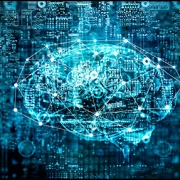Using AI to make meetings more bearable
Using AI to make meetings more bearable
According to research 72% of meetings are ineffective and Elon Musk once said that “excessive meetings are the blight of big companies and almost always get worse over time”.
Your brain activity drops when you have a Zoom meeting, says a report, external by researchers at Yale University in the US, and the UK’s University College London.
But it doesn’t have to be this way.
Using AI can make a big difference.
Here’s how.
Rapidly expanding functions already include the AI transcribing the meeting for you, suggesting questions you might want to ask, summarising the meeting in point form, reminding you of who else is present,
Husayn Kassai is the founder of London-based start-up Quench AI, which makes AI-powered training software.
He predicts that in the future “everyone in the workforce will have some sort of AI coach accompanying them” to meetings.
It is claimed that Copilot is already having “a pretty significant impact” on people’s video meetings. “People are able to summarise meetings four times faster.”
One of the most common ways that you can use AI is to ask it what questions you should ask in a meeting. That will speed things up and help people stick to the point.










